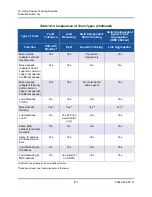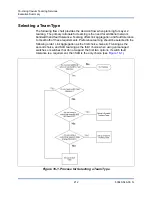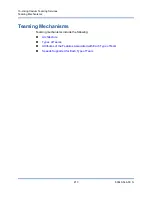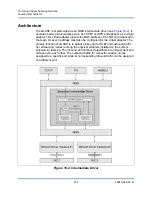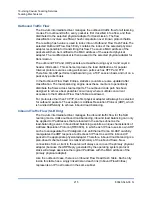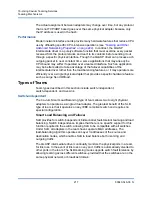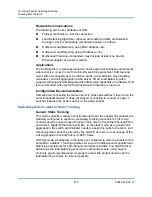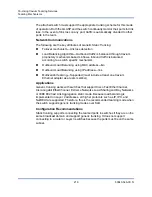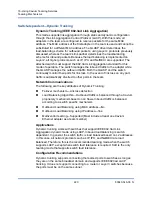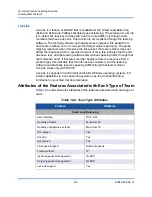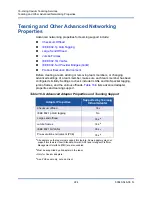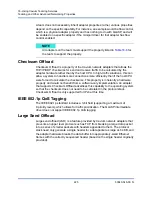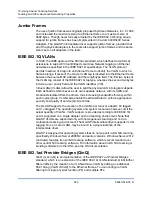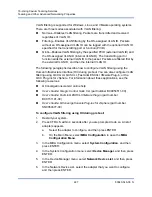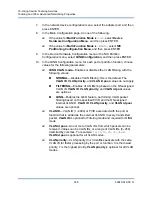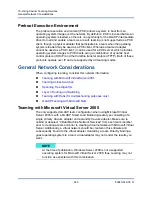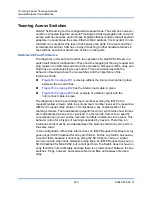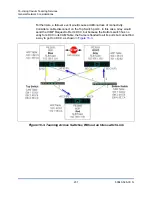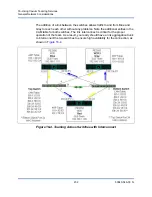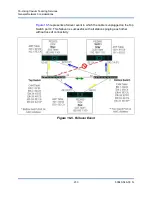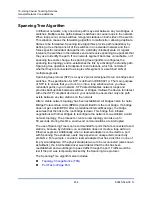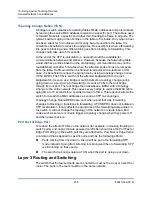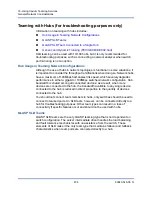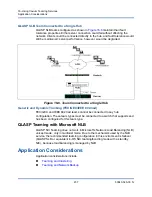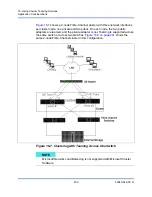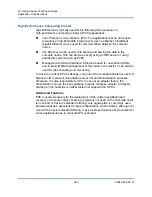
16–Using Cavium Teaming Services
Teaming and Other Advanced Networking Properties
225
83840-546-00 N
A team does not necessarily inherit adapter properties; rather, various properties
depend on the specific capability. For instance, an example would be flow control,
which is a physical adapter property and has nothing to do with QLASP, and will
be enabled on a specific adapter if the miniport driver for that adapter has flow
control enabled.
Checksum Offload
Checksum Offload is a property of the Cavium network adapters that allows the
TCP/IP/UDP checksums for send and receive traffic to be calculated by the
adapter hardware rather than by the host CPU. In high-traffic situations, this can
allow a system to handle more connections more efficiently than if the host CPU
were forced to calculate the checksums. This property is inherently a hardware
property and would not benefit from a software-only implementation. An adapter
that supports Checksum Offload advertises this capability to the operating system
so that the checksum does not need to be calculated in the protocol stack.
Checksum Offload is only supported for IPv4 at this time.
IEEE 802.1p QoS Tagging
The IEEE 802.1p standard includes a 3-bit field (supporting a maximum of
8 priority levels), which allows for traffic prioritization. The QLASP intermediate
driver does not support IEEE 802.1p QoS tagging.
Large Send Offload
Large send offload (LSO) is a feature provided by Cavium network adapters that
prevents an upper level protocol such as TCP from breaking a large data packet
into a series of smaller packets with headers appended to them. The protocol
stack need only generate a single header for a data packet as large as 64 KB, and
the adapter hardware breaks the data buffer into appropriately-sized Ethernet
frames with the correctly sequenced header (based on the single header originally
provided).
NOTE
All adapters on the team must support the property listed in
for
the team to support the property.

